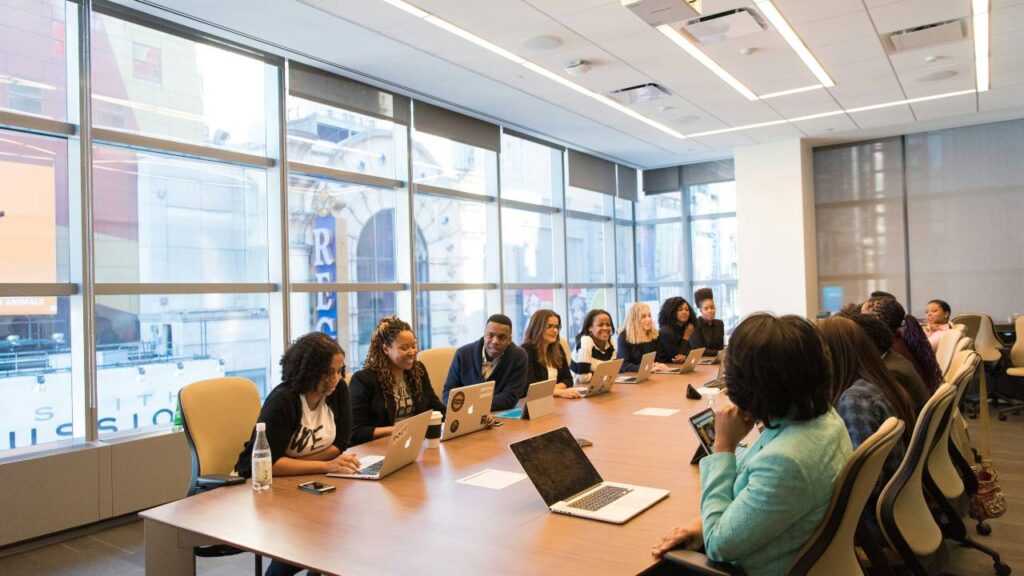
In the fast-paced world of business, protecting your company’s assets, information, and personnel has never been more crucial. Enhancing corporate security is an ongoing challenge that requires a proactive approach to identify potential threats and implement effective measures to mitigate risks. From safeguarding sensitive data against cyber attacks to ensuring the physical safety of your premises and staff, a comprehensive security strategy is essential to the resilience and longevity of your business.
In an age where digital threats are evolving at an alarming rate, understanding the landscape of cyber security is fundamental. You must stay abreast of the latest security technologies and practices, such as using robust encryption, multi-factor authentication, and continuous network monitoring, to protect your company’s digital infrastructure. Additionally, fostering a culture of security awareness among employees can significantly minimise the risk of data breaches and cyber incidents.
But corporate security is not solely about the digital realm; it’s also about the physical safety of your organisation. This involves measures ranging from implementing strict access control systems to prevent unauthorised entry, to conducting regular security audits to enhance office safety standards and ensure that all potential vulnerabilities are addressed. By integrating both digital and physical security strategies, you strengthen your business for the future and create a fortified barrier against a wide array of potential threats to your company’s well-being.
Developing a Robust Corporate Security Plan
In crafting your corporate security plan, it’s essential to focus on risk management, establish strong policies and procedures, and ensure ongoing training and awareness for your team.
Risk Management Framework
Your first step is to adopt a risk management framework. This strategy enables you to identify potential security threats and the level of risk they pose to your organisation. By doing so, you can prioritise your security efforts and allocate resources efficiently. Start by assessing the likelihood and impact of various risks, then develop strategies for mitigating the most serious threats. Remember that compliance with regulatory standards plays a pivotal role here.
Critical Policies and Procedures
Implementing critical policies and procedures is fundamental to your security plan. You must clearly outline roles and responsibilities across your various teams to ensure everyone knows what to do in the event of a security breach. Include protocols for incident response, data protection, and access control. Ensure that these policies are detailed and accessible to all relevant staff members. Regularly reviewing and updating your procedures to adapt to new threats is crucial for maintaining a resilient security posture.
Regular Training and Awareness Programmes
Developing regular training and awareness programmes is vital to reinforce your security framework. Educating your staff on the latest security threats and best practices is not a one-off event; it requires your ongoing attention and effort. Encourage your teams to be proactive in spotting potential risks and reporting security incidents. Your training should cover both the practical aspects of your policies and the importance of security awareness at every level of the organisation. By fostering a culture of security, you help to protect your business from the inside out.
Protecting Corporate Data and Technology

In the digital age, safeguarding your company’s sensitive data and technology infrastructure is imperative. A resilient security framework must be established to combat cyber threats and prevent data breaches.
Cybersecurity Measures
Your first line of defence against cyber threats is robust cybersecurity measures. Partnering with experts like MJ Flood Security Dublin can ensure that your technology is armed with cutting-edge safeguards. It’s essential to update your software regularly to patch vulnerabilities and employ multi-factor authentication (MFA) to add an extra layer of protection to your systems.
Data Protection Strategies
Protecting the integrity, confidentiality, and availability of your data is non-negotiable. You should encrypt sensitive information and routinely back up data to secure locations. Consider establishing clear data protection policies that outline proper handling and storage procedures. Staff training on recognising potential threats and responding to them is also crucial for maintaining data security.
Access Control Systems
Robust access control provides numerous benefits – it restricts entry to your technology systems and physical premises. Implementing keycard access, biometric scanners, or digital keypad systems can help keep unauthorised individuals at bay. On the digital front, ensuring that employees have access only to the data necessary for their role minimises the risk of internal data breaches.
Securing Physical Assets and Personnel

Securing your company’s physical assets and personnel is crucial in maintaining a safe working environment and protecting your investment. A multi-layered approach is often necessary, embracing various security measures tailored to meet the specific needs of your corporation.
Implementing Physical Security Measures
Physical security is the first line of defence in protecting your property and personnel. Consider installing surveillance cameras in strategic locations around your premises to deter unauthorised access and monitor for any suspicious activity. Equally important is access control; utilising electronic key cards or biometric scanners for entry points ensures that only authorised individuals can enter sensitive areas. Regular maintenance checks of your security infrastructure are essential to ensure everything is functioning as intended.
Enhanced Security for Personnel
Your employees’ safety is paramount; hence, fostering a secure work environment is essential. For executive protection, consider hiring security guards with the expertise in risk assessment and rapid response to potential threats. You can offer your staff security awareness training to heighten their vigilance and prepare them for emergency situations. Personalised security strategies might be necessary for employees who are at greater risk due to their role or prominence within the corporation.
Private Security and Event Security Management
Your security team must adapt to varied situations, such as corporate events which pose unique security challenges. Hiring a private security firm can provide a professional level of event security. They will manage crowd control, secure entry and exit points, and coordinate with local authorities if necessary. Additionally, for high-profile gatherings or when sensitive information is discussed, additional layers of security may be required to ensure the safety of all attendees.
Strengthening Business Resilience
Ensuring your company can withstand various challenges is crucial for maintaining a competitive edge. Focusing on business continuity planning and emergency response will fortify your organisation’s resilience.
Business Continuity Planning
Your business continuity plan serves as a lifeline during disruptions. It’s essential to identify critical operations and systems that support your key services and products. By doing so, you’ll be able to devise effective strategies to maintain or quickly resume these functions in the event of an interruption. Initiating a Business Impact Analysis (BIA) helps you understand the potential effects of different incidents, form the basis of your risk management efforts, and craft a resilient continuity plan.
Consider the following to enhance your continuity plan:
- Establish clear roles and responsibilities for your team members.
- Define steps to safeguard and backup important data.
- Regularly test and update your plan to ensure its effectiveness in various scenarios.
Emergency Response and Recovery
Dealing with emergencies promptly can minimise damage to your operations and reputation. Having an Emergency Response Plan (ERP) lets you address incidents swiftly and with confidence. Your ERP should outline procedures to follow in the face of disasters, whether they are natural, like floods or earthquakes, or other crises such as cyber-attacks.
Key aspects of your ERP include:
- A communication strategy to keep all stakeholders informed during an incident.
- Clearly outlined evacuation plans and safety protocols to protect your staff.
- A recovery plan to restore critical business functions after an emergency, reducing downtime and financial impact.
Integrating business resilience into your company’s DNA allows it to flourish even in adversity. Prioritising both business continuity and emergency management ensures that when disaster strikes, your business is prepared, responsive, and capable of recovery.
Building a Culture of Security

In your company, building a culture of security is a pivotal step towards safeguarding your assets and information. Promote an environment where every employee values security and understands their role in maintaining it.
Promoting Security Awareness Throughout the Organisation
Creating a comprehensive security awareness programme is vital. Your programme should include regular training sessions tailored to the different roles within your organisation. Illuminate the risks of lax security, particularly with regards to social media, by sharing real-world examples of security breaches. It’s essential that your events and materials teach proactive measures to counteract these risks. Engage your workforce with interactive modules that highlight the human element of security, stressing that maintaining security is a part of everyone’s job description.
Encouraging Collaboration and Shared Responsibility
Encourage a sense of shared responsibility for corporate security by fostering open communication across departments. Promote the idea that security is not solely the IT department’s domain, but a shared cornerstone of the daily operations. Incentivise teams to collaborate on identifying potential vulnerabilities and reporting them promptly. Ensure that protocols are clear and support your employees to become vigilant, proactive guardians of your company’s security. Remember, when one hand helps the other, you build a stronger line of defence against potential threats.
